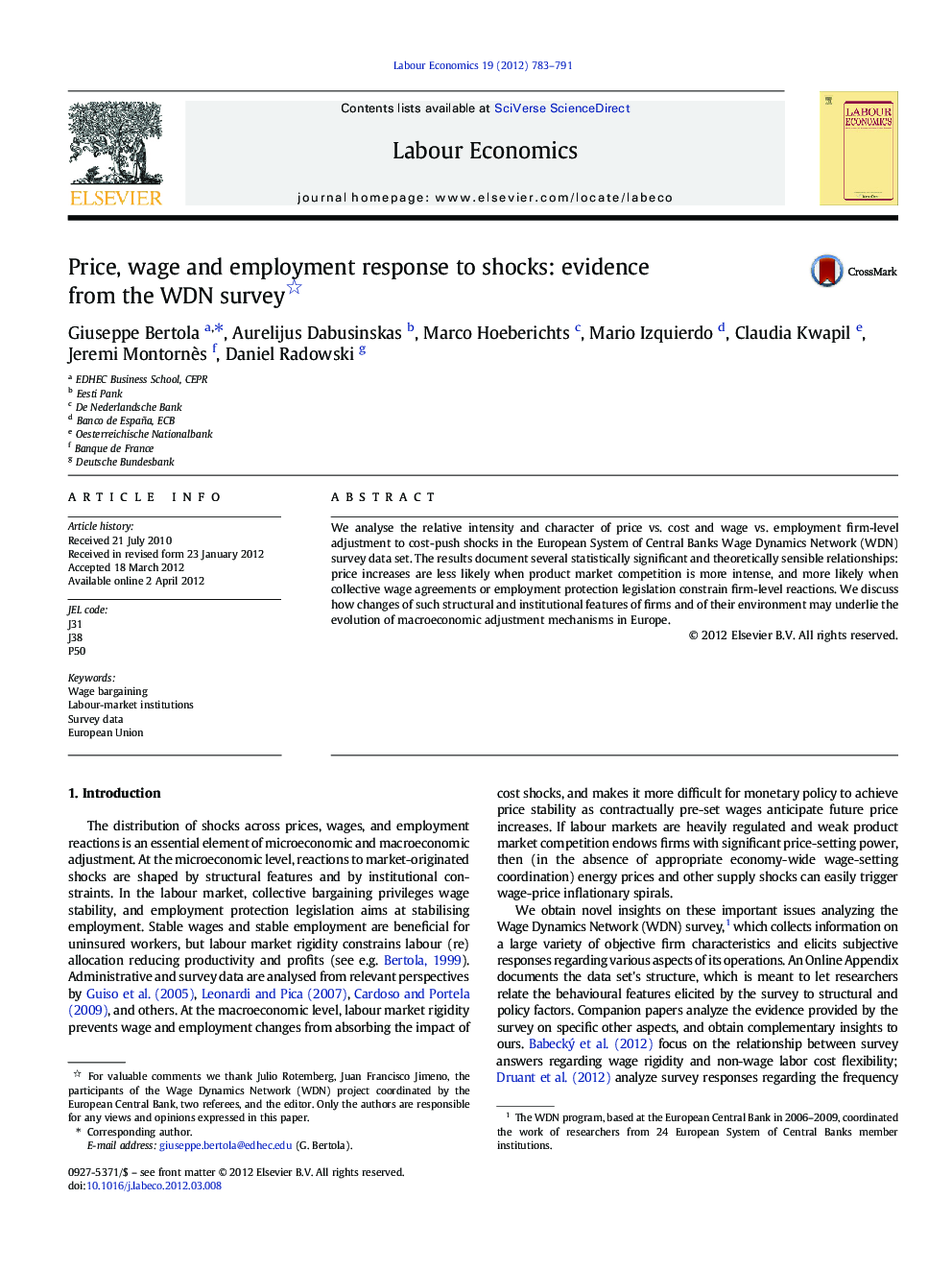| Article ID | Journal | Published Year | Pages | File Type |
|---|---|---|---|---|
| 972411 | Labour Economics | 2012 | 9 Pages |
We analyse the relative intensity and character of price vs. cost and wage vs. employment firm-level adjustment to cost-push shocks in the European System of Central Banks Wage Dynamics Network (WDN) survey data set. The results document several statistically significant and theoretically sensible relationships: price increases are less likely when product market competition is more intense, and more likely when collective wage agreements or employment protection legislation constrain firm-level reactions. We discuss how changes of such structural and institutional features of firms and of their environment may underlie the evolution of macroeconomic adjustment mechanisms in Europe.
► Product market competition matters for price increases and cost reductions after a wage shock. ► Collective wage agreements at industry or national level makes a price increase more likely. ► Firms operating in a highly competitive environment are less likely to reduce non-labour costs. ► Binding labour contracts induce firms to react to cost shocks by reducing employment.
